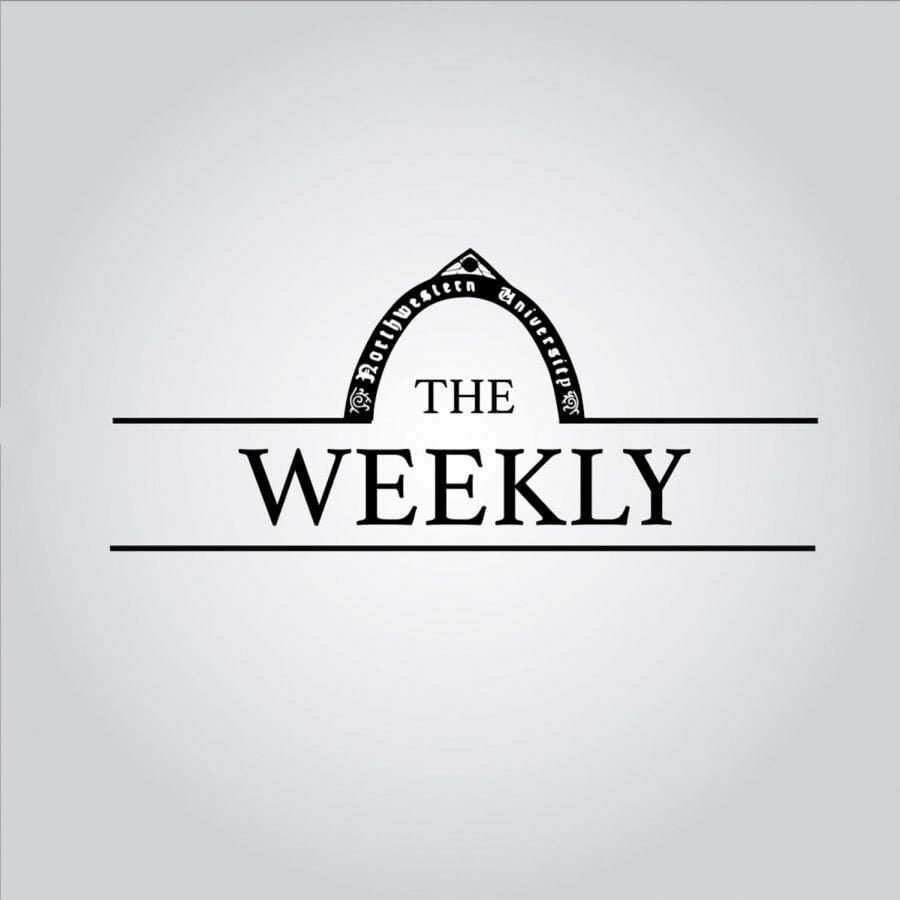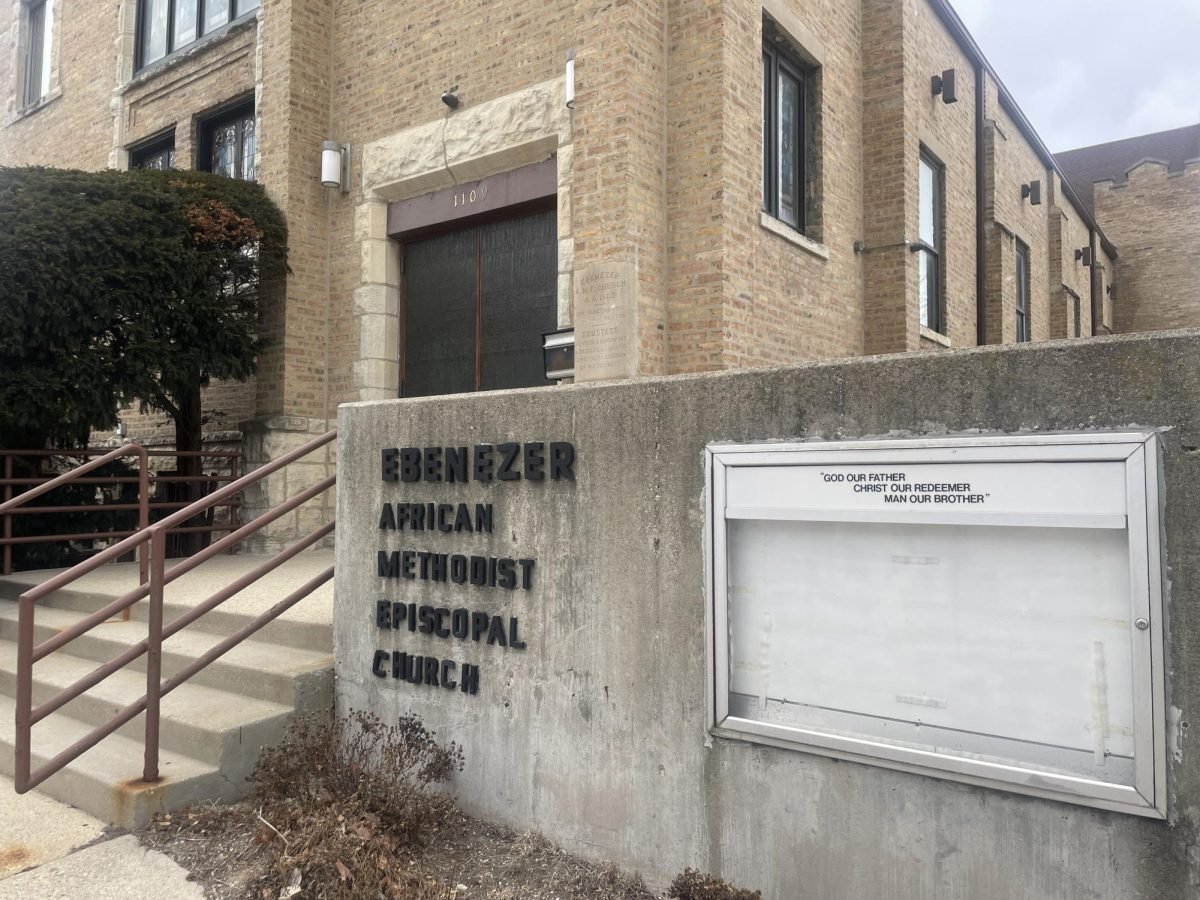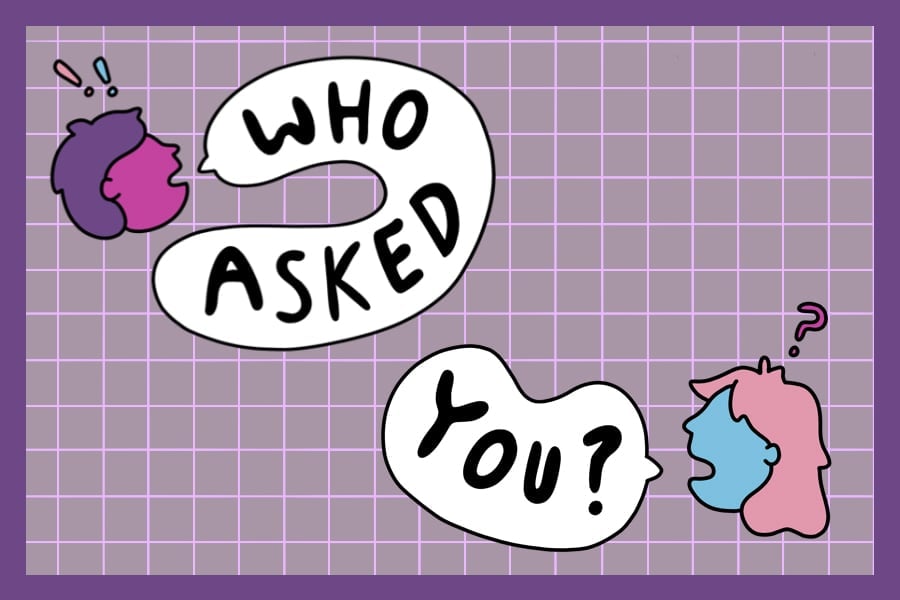The Weekly is back! How have Northwestern policies changed since last spring’s pro-Palestinian encampment? How are Evanston and local organizations addressing homelessness around the city? The Daily answers these questions and recaps other top stories from the last week.
EDWARD SIMON CRUZ: Northwestern administrators will now be limiting official statements on political issues.
Evanston has been hearing multiple proposals to aid the city’s homeless population.
And Taco Bell will reopen on Sherman Avenue in the coming weeks.
From The Daily Northwestern, I’m Edward Simon Cruz. This is The Weekly, a breakdown of our top headlines from the past week.
NU students have just wrapped up their first days of class, and we’re here with the stories you need to know as you roll into a new week. We’re excited to bring back this podcast with two of our editors: Campus Editor Jerry Wu and City Editor Shreya Srinivasan.
Jerry, let’s start with you. On Friday, President (Michael) Schill and University Provost Kathleen Hagerty released a statement from the President’s Advisory Committee on Free Expression and Institutional Speech. And while they didn’t want to describe themselves as necessarily practicing academic neutrality, they did say that they’re going to limit statements on political issues, public issues, unless they directly concern the University.
And we’ve seen in some of the statements that Schill has made both to the public at large and to new students, as he did in his convocation (address) on the 18th, that he uses phrases like “robust discussion and debate.” He talks about the importance of promoting free expression without impeding on others’ participation. And he’s condemned antisemitism, Islamophobia and other forms of hate.
And we know, in light of the encampment at Deering Meadow last spring, that the University has rolled out some policy changes to align with these general values and approaches to free expression and demonstration. What were some of those big changes?
JERRY WU: We saw that at the beginning of this month, President Michael Schill and, you know, a few other University administrators finally rolled out a set of new demonstration policies and other limitations when it comes to student protests on campus.
One of the big changes that we saw was to the demonstration policy. If we remember at the start of the encampment on Deering Meadow last year, Northwestern had enacted an interim addendum to the preexisting demonstration policy, and that related to how students could demonstrate on campus, including at The Rock, as well as the use of bullhorns, lighting, banners and other things. And with the updated demonstration policy, it does in fact codify some of these elements, including the ban on tenting except for, you know, certain University-approved events, including camping out at The Rock.
But, key to the overnight demonstration policy — the new one was that demonstrations between midnight to all the way to 6 a.m. will no longer be permitted indoors or outdoors except for guarding The Rock. And, you know, obviously, this was seen by a lot of students who I’ve talked to as the University’s direct attempt to prevent any encampment from forming on campus this year, and it’s drawn a lot of outrage. And it’s also instilled a lot of fear in some of the students I’ve talked to in terms of how they’re planning to demonstrate this coming year as well.
So some of the other things we saw was a new Display and Solicitation Policy, and that one primarily focuses on setting parameters for a lot of on-campus displays, including flyers, banners, chalking. Many of these were in fact used during the encampment and demonstrations last year, and one of the focuses is setting up — delineating designated zones for each of these markers as an attempt to crack down and ensure that the misuse of these displays doesn’t really occur. If we remember from last year, there were some reports of there being displays that were condemned by students as antisemitic.
It’s also important to point out that there was a new set of guidelines or updates to the Student Code of Conduct. And for this year, one of the key ones was the fact that now they require students to identify themselves by removing their face mask or covering when asked by, you know, perhaps a University official.
This really comes down to what we really saw at the encampment, where a lot of students had such face coverings and masks, and, you know, having this new change to the Code of Conduct really, you know, serves as, you know, an effort to crack down on these demonstrations in the coming school year as well.
EDWARD SIMON CRUZ: And we’ve also seen the University roll out some changes to the trainings and Wildcat Welcome procedures that they had this year. Can you talk a bit more about what you’ve seen with those?
JERRY WU: One of the key changes to Wildcat Welcome this year is, there’s the introduction of these new antisemitism and Islamophobia trainings that new students were mandated to attend during their final day of their orientation, which would be last Sunday (Sept. 21).
And so what we saw from those trainings were that the University had invited two specialists or speakers to talk about the history of antisemitism and Islamophobia for about, you know, roughly an hour for the incoming students. I think it was a month ago, President Schill had prefaced that, you know, these new changes would be coming to student orientation.
But contrary to that, a lot of students this year, especially Peer Advisers, were entirely caught off guard by this. The main takeaway from these trainings was the consensus among a lot of students that there was no mention or very few mentions of the encampment and all the activism that has gone on in the last year.
And many students really considered — especially incoming students, considered those topics to be areas of interest and concern in terms of understanding how the campus climate might shake out this year, but, you know, the trainings had very little mention of those subjects.
EDWARD SIMON CRUZ: That was Jerry Wu, our campus editor, talking about some of the big changes on campus related to free speech and demonstration.
Turning to some big developments over on the city side, we’ve seen that over the last few months, there have been various proposals rolling around in City Council related to homelessness in Evanston, including but not limited to the encampment on Howard Street. What are some of the things that we’ve seen over these last few months?
SHREYA SRINIVASAN: Back in May, actually, City Council members were discussing plans to allocate $500,000 to address some issues around the encampment at Howard Street. While those proposals did not move forward and were held back, they did show support to spend roughly $10,000 to monitor activities around the area in efforts to promote safety and discourage loitering.
I recently reached out to the (Human Services Committee) in the city and their spokesperson, Cynthia Vargas, who reached out to me about the City Council proposals at the May meeting saying that, quote, “All motions were withdrawn regarding this matter, and the city manager was advised on the options the City Council prefers for this project, which includes signage and light installations in this area.”
I think it’ll be really interesting to see where these proposals go in the future, if they will be reintroduced in City Council regarding the encampments around Howard Street, and, in large, safety for the unhoused, especially around train stations and public areas.
Back in July of this year, City Council approved a plan for a $2 million federal grant by the Illinois Department of Commerce and Economic Opportunity and their Urban Shelter Grant to renovate the rehabilitate the rehabilitation of Hilda’s Place, which is currently owned by Connections for the Homeless, a local social service organization for the unhoused in the area.
EDWARD SIMON CRUZ: And you mentioned that grant for Hilda’s Place. On Tuesday, the city announced that the state’s Urban Shelter Program had approved that grant.
And we also saw on Tuesday, also tied to Connections for the Homeless, that there was a memorial where, among other things, they paid tribute to the four people who were killed on that Labor Day shooting on the Blue Line. One of those people has a connection to Connections. What did we see at that memorial, and what are some of the bigger concerns lingering right now surrounding safety and homelessness in Evanston?
SHREYA SRINIVASAN: As you mentioned, at the Connections for the Homeless memorial service on Tuesday, they mourned 64-year-old Margaret Miller Johnson, who died on the Labor Day shooting on the Blue Line, who’d received support from Connections for the Homeless in the past. Johnson and the three other victims were shot while sleeping on the train at around 5:30 in the morning, according to Forest Park Mayor Rory Hoskins.
We interviewed Connections CEO Betty Bogg, who mentioned that, quote, “The tragedy of losing your home in America is prevalent right now, rising because of the housing crisis we find ourselves in.”
And as the homelessness population rises, so do the amount of people who are likely to seek trains as shelter.
Right now, there are a few partnerships with the (Chicago Transit Authority) and the Chicago Department of Family and Support Services that offer homeless outreach programs and additional outreach to unhoused passengers on the train. While there is no current agreement with the CTA and the city of Evanston for the Purple Line, which runs through the city, Evanston does have its (Crisis Alternative Response Evanston) team, which has been on the ground working with other agencies on these responsibilities.
We also interviewed the director for Thresholds’ Homeless Outreach Program, Sam Guardino, who mentioned that unhoused people don’t always feel comfortable staying with large groups of people in shelters and who may resort to trains as shelters.
To close off, we also interviewed the Connections board president, Pastor Monté Dillard, who said that “it will be up to us to hold their memories in our hearts and to hold our society accountable for the violence done to all those who must struggle to put a roof over their heads in this richest country on Earth.”
EDWARD SIMON CRUZ: Shreya Srinivasan, our city editor, giving some updates on steps the city is taking to address homelessness.
Here are the other top headlines from the week.
NU reached an all-time high of No. 6 in the U.S. News & World Report’s annual National Universities rankings.
Evanston Pride hosted the fourth annual Fiesta Hispana on Thursday night, celebrating Hispanic Heritage Month.
Chicago Fashion Week will take place from Oct. 9-20 with events throughout the Chicago area.
Northwestern field hockey, ranked No. 2 in the nation, beat No. 16 Princeton today 3-2. NU remains undefeated this season.
MOD Pizza revised its meal exchange options beginning this academic year. If a student wants to order a pizza using a meal exchange, they can now only add one topping.
And, also in food news, a new Taco Bell location will open on Sherman Avenue in about 40 days.
From The Daily Northwestern, I’m Edward Simon Cruz. Thanks for listening to another episode of The Weekly. This episode was reported and produced by me, Jerry Wu and Shreya Srinivasan.
The audio editor of The Daily Northwestern is me, Edward Simon Cruz. The digital managing editors are Carlotta Angiolillo and Sasha Draeger-Mazer. The editor in chief is Jacob Wendler.
Our theme music is “Night Owl” by Broke for Free, used under a Creative Commons Attribution License and provided by the Free Music Archive.
Follow us on X and Instagram @thedailynu. We’ll be back next Monday with another episode of The Weekly.
Email: edwardcruz2027@u.northwestern.edu
Email: jerrywu2027@u.northwestern.edu
X: @Jerrwu
Email: shreyasrinivasan2026@u.northwestern.edu
X: @shreyasrin
Related Stories:
— Northwestern to limit official statements on political matters
— Blue Line shooting highlights increased risk of violence for the unhoused







